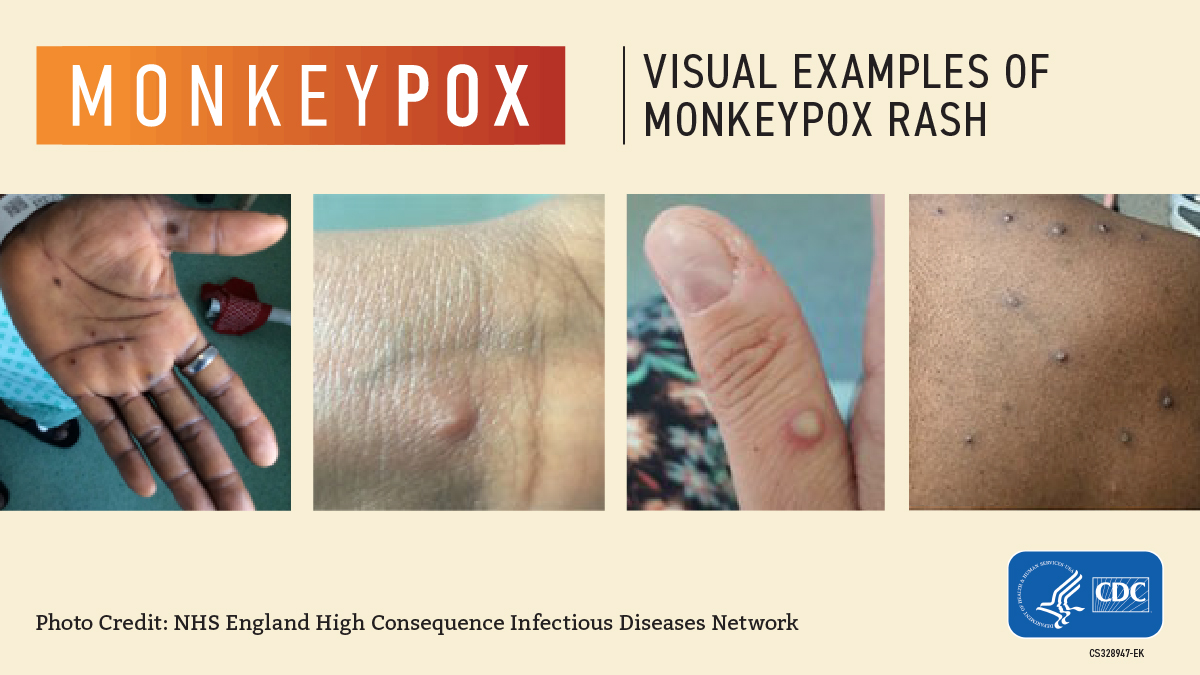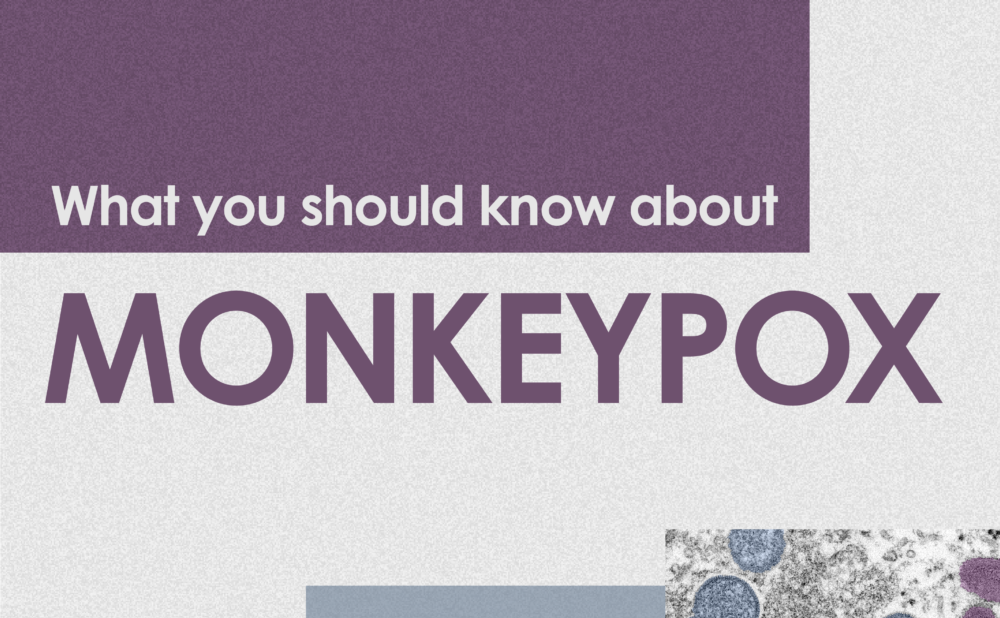What to Know About Monkeypox
What is monkeypox?
Monkeypox is a rare disease caused by monkeypox virus. It was first discovered in 1958 in monkeys who were being kept for research, and the first human case was recorded in 1970. Monkeypox was mostly seen in African countries. But currently, an outbreak is spreading fast outside of Africa. The virus has been reported in at least a dozen countries, including the U.S.
How does monkeypox spread?
Monkeypox spreads when a person comes into contact with an animal or human with the virus. It can spread through contact with body fluids and monkeypox sores, items that have been contaminated with fluids or sores (clothing, bedding, etc.), sexual contact, or through respiratory droplets following prolonged face-to-face contact. Transmission may occur during sex through skin-to-skin and other intimate contacts.
What are the symptoms of monkeypox?
Monkeypox often begins as flu-like symptoms, such as fever, headache, chills, and muscle aches. The distinctive identification of monkeypox is a pimple-like rash that appears anywhere on your body, especially in the genital area.
How can you prevent monkeypox?
- Avoid close contact with people who have symptoms
- Avoid contact with infected animals
- Avoiding contact with contaminated materials, such as clothing and bedding
- Practice good hand hygiene after contact with infected animals or humans
- Use appropriate PPE when caring for others with symptoms
Can monkeypox be treated?
At this time, there are no specific treatments available for monkeypox infections. Medication may be used to ease the symptoms of illness. In some cases, a vaccine can be given to prevent the disease after a high-risk exposure to the virus.
Vaccine Eligibility
People who live and work in San Francisco are eligible for a Jynneos vaccine:
- Gay, bisexual, and other men or trans people who have sex with men, who have had more than 1 sexual partner in the past 14 days
Sex workers of any sexual orientation or gender identity - Persons who have had close contact within the past 14 days with someone with suspected or confirmed monkeypox
- Persons who had close contact with others at a venue or event or within a social group in the past 14 days where a suspected or confirmed monkeypox case was identified. This includes persons who received notice from a venue or event of a potential exposure within the past 14 days
- Laboratory workers who routinely perform monkeypox virus testing
- Clinicians who have had a high-risk occupational exposure (e.g., examined monkeypox lesions or collected monkeypox specimens without using recommended personal protective equipment)
Walk-in Vaccination Service:
Chinese Hospital Support Health Services
845 Jackson Street, B1, San Francisco, CA 94133
Mon-Fri: 9am-12pm; 2pm-4pm
*Please bring your insurance card.
If you think you are infected with monkeypox, contact your healthcare provider ASAP and avoid close contact with others.
For more information, please visit www.cdc.gov/poxvirus/monkeypox/index.html

Medical Disclaimer:
This material is not a substitute for qualified medical diagnoses, treatment, or advice. It should not be used to replace the suggestions of your personal physician or other health care professionals.




